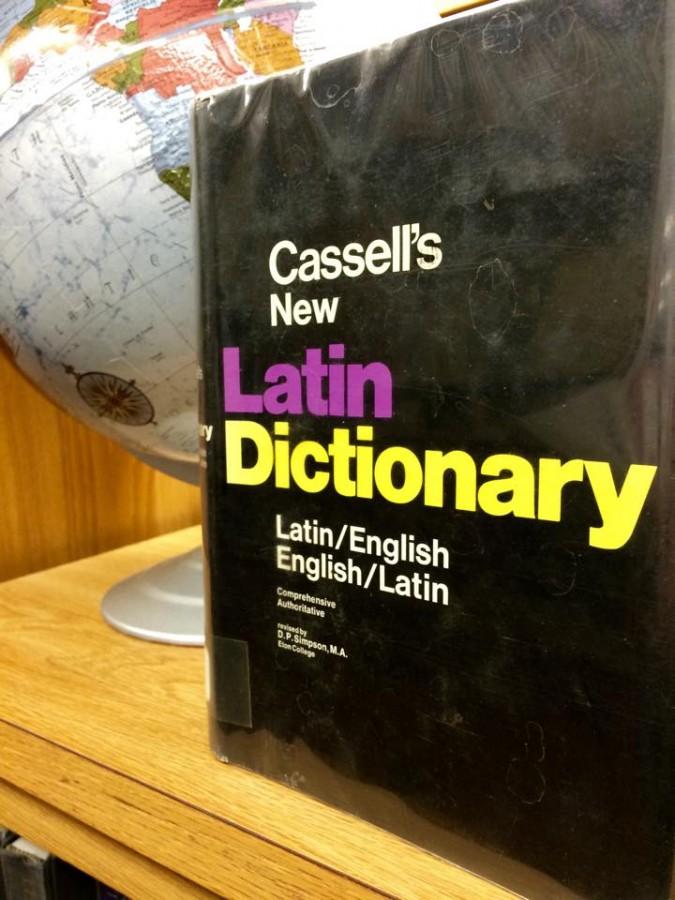Hello, hola, bonjour, ni hao: What about Latin?
February 27, 2015
Since the 2010-2011 school year, CHS students have not been offered the opportunity to take a Latin course. Although Latin is by definition a “dead language” and no longer spoken, it is time for it to rise again at CHS.
Latin is the foundation of many languages including French, Italian, Spanish and English.
According to the Johns Hopkins School of Education website, 70 percent of English words come from Greek and Latin roots.
Learning Latin can improve students’ ability to grasp foreign languages in the future and can lay a better foundation for what they read and write in English.
According to CHS English teacher Valerie Mainwaring, Latin’s sentence structure puts words in order of importance, which helps students improve their own sentences and train their brains to think in more meticulous ways.
Besides its vocabulary-enhancing aspect, learning Latin introduces students to thousands of years of its linguistic history and its effect on the modern world.
According to Wootton Latin teacher Eric Sasse, a main purpose of Latin studies is to place the language in a historical context, which Wootton students find intriguing. Latin, the language of Romans, impacted European history and therefore helped shape modern society.
Given that Latin presents itself in more aspects of the modern world than people may realize, studying it can become a helpful aid in different careers.
According to CHS Anatomy and Physiology teacher James Fishman, anatomy is similar to learning a foreign language because the anatomical terms are Latin and Greek words. Learning Latin better positions students going into the sciences to understand and retain information.
Some would argue that because Latin is no longer spoken, it is no longer useful and would be a waste to learn. However, Latin roots will forever be imprinted into English and other languages, thus, its culture lives on.
According to Sasse, there are 11 available languages that schools in MCPS can offer. Each school decides which of these languages to include based upon the requests of its community.
Wootton, Quince Orchard, and Walter Johnson are among the MCPS schools that teach Latin.
If demand for Latin isn’t high enough within the school, an alternative to offering it as a language course is to create a unit within the English class curriculum that focuses on Latin roots.
According to CHS director of counseling Robin Moore, CHS dropped the language after Latin teacher Robert Payne retired in 2010 because Latin teachers are hard to find. Private schools often accept Latin teachers more quickly than public schools because of the more complicated process required by the Maryland State Department of Education to hire public school teachers.
Latin can be found in almost every career as well as in many parts of everyday life. The study of Latin can benefit students’ ability to comprehend, write and think in more complex ways. It can also put them at an advantage in their school, in their careers, and throughout the rest of their lives.
Whether it be through an additional world language class or merely a unit in English, Latin should be incorporated into the curriculum at CHS in order to ensure that the standard of academic excellence lives on.


